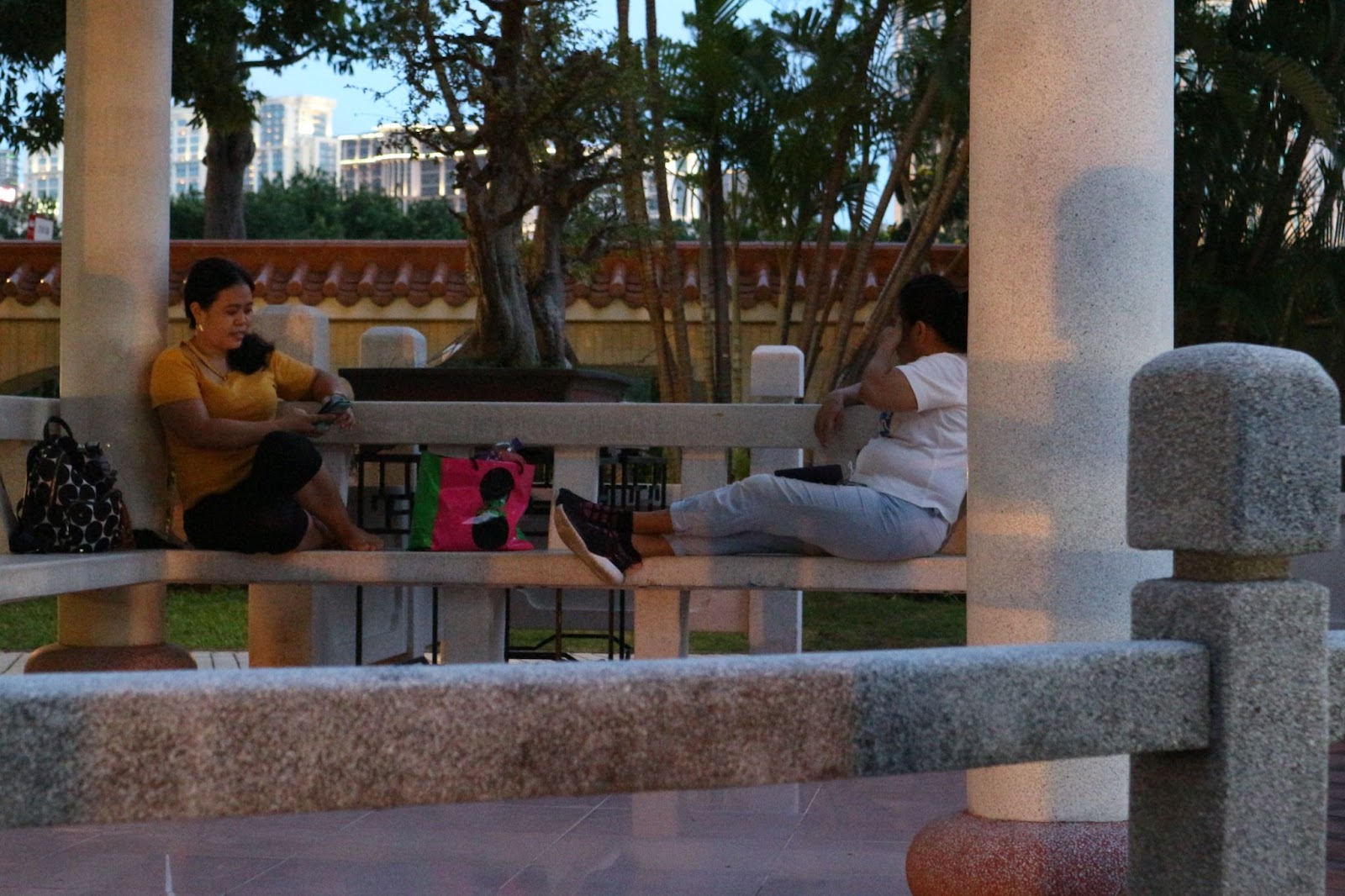
BY PHOEBE VONG
Extended from early-mid to late July, Macau implemented a city-wide suspension of all activity from industrial and commercial non-essential businesses, in response to the latest Covid outbreak. Though various establishments were exempt from this new protocol – such as water and telecommunication providers, Filipinos within the community have encountered threats to job security that have filled the societal atmosphere with anxiety.
In the same month, gross gaming revenue declined to its lowest since 2009, falling to 398 million patacas (equivalent to $49 million US dollars) according to the Macau Gaming Inspection and Coordination Bureau’s analytics. This prompted great disquiet as Macau is the only region in China that permits the operation of casinos, in which profits from gambling and tourism play integral roles in the city’s economy. This would translate to a domino effect on the financial statuses of many working individuals residing in Macau, especially those heavily reliant on receiving monthly wages.
Catching recent attention, many overseas Filipino workers (OFW) have endured waves of hard hits following cases of unpaid leave that have impacted over 5,000 Filipinos in Macau, out of the 26,400 total Filipinos accounting for 4.6% of the entire population. “We are struggling to cover usual household expenses such as food and monthly house rent, we can’t even sustain the needs of our family in our respective countries. Add in the fear of getting sick, the inability to leave home, and worrying about the status of my current job,” Donalia Fernandez – 27 year old Filipino security officer – commented.
Around half of Macau’s Filipino population identifies as domestic workers with others predominately occupying jobs in the tourism and hospitality industries, which were all directly influenced by the ‘no pay leave’ policy. “I’m so worried about my food every day… we also have the rent of the house and we also have the bills for water and the electricity… I was super stressed,” said Catherine Bade Valdellon – 43 year old Filipino domestic helper – upon suspension from work. Covering routine bills, essential for maintaining the standard of living, has become a common difficulty shared among members of the Filipino community.
Combined with mandatory daily nucleic acid testing (NAT) required of Filipino residents only, executed in late June for a 3-day duration, some even expressed discontent over the government’s ‘discriminatory’ decisions to target a particular ethnic group by itself. Authorities rationalized this by emphasizing the greater potential risks of spread within the Filipino communities. Filipinos being responsible for 9.5% of total Covid cases in Macau have also been accentuated by Leong lek Hou, head of the communicable disease prevention and control division of the health bureau.
Despite the controversy evoked from this instance, the Phillippine Consulate General in Macau has offered appreciable aid to many affected OFWs through provisions of food, medicine, and nutritional supplements. “It was a huge help for those people in need amidst the pandemic,” D. Fernandez added in succession.
“Let’s avoid making this order a political issue,” the consulate pronounced in a Facebook post. Further defending the stringent public policies, residents are reminded to not politicise the issue and instead, support the system’s zero covid prerequisite in order to restore normality in the Macanese society again.
Free Covid self-testing kits and N95 masks were offered to all residents by the Macanese government during the July pandemic.
Annihilating all rising tensions associated with the Covid protocol, OFWs responded with a united willingness to cooperate, exhibiting gratefulness as well towards the Macau government for the free NATs, rapid antigen tests, and N95 masks. “If it was necessary for the safety of all people in Macau, then there is no reason to go against it,” Jun Mark Fernandez – 29 year old Filipino security officer – replied. What had initially seemed like an ‘unfair’ and ‘immoral’ proposal of action has quickly transformed into reconciliation between both concerned parties – the government and OFWs. “I didn’t see any reason to be dismayed about the issue of discrimination and racism against the Filipino Nation. As a migrant worker, it is my responsibility to abide by the law,” Fernandez declared.
Local Filipino residents ultimately did not take considerable offense to the safety measures taken into effect. Now over two weeks after the consolidation period has passed in the city, only 2 new cases have been reported since July 31, according to JHU CSSE Covid-19 data. Perhaps it would require much greater friction to disturb peaceful relations ingrained within Macau’s diverse communities, yet at present, altercations during the pandemic have only been confronted with good nature and reassurance.
“We sincerely thank the Macau government. Thank you very much for not abandoning us in the middle of the pandemic,” Valdellon stated.






